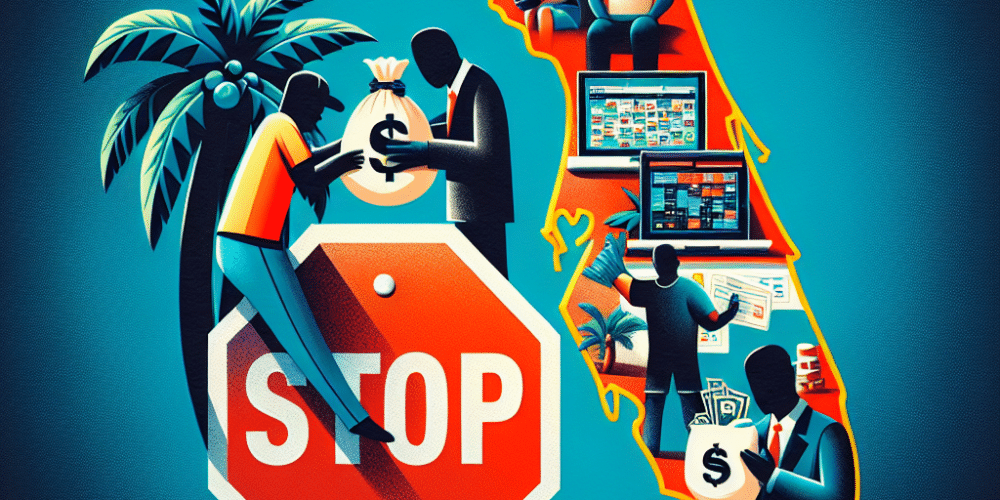On November 18, 2025, a significant legislative proposal, HB 189, is set to be discussed, intending to provide a legal framework for daily fantasy sports (DFS) and criminalize sports match-fixing crimes. The bill, introduced by Representative Dana Trabulsy, proposes strict measures against bribery in professional sports, a move prompted by ongoing scandals in major leagues such as the NBA and MLB.
The legislation aims to classify any monetary inducement offered or accepted by athletes to alter their performance as a felony. Both the giver and receiver of such bribes would face severe legal consequences under this proposed law. Specifically, any involvement in these activities would be categorized as a third-degree felony, reflecting the seriousness with which the state intends to tackle this issue.
In addition to addressing corruption in sports, HB 189 also seeks to pave the way for the legalization of daily fantasy sports in Florida, a proposal that has sparked considerable debate. Attorney General Rob Bonta has expressed concerns, labeling fantasy sports as a form of gambling that currently operates without regulation. This perspective highlights the complexity of introducing DFS as a legitimate gaming activity within the state.
Currently, the Seminole Tribe of Florida holds exclusive rights to operate betting activities through the Hard Rock platform, under a carefully crafted tribal compact. This arrangement effectively grants the Hard Rock brand a monopoly over Florida’s betting and gaming market. The status quo is unlikely to shift unless new legislative measures, such as HB 189, are enacted.
Within the bill, daily fantasy sports are defined with an emphasis on the skills and knowledge of the participants. The outcomes of DFS contests should reflect the competency of the players rather than relying on random results or team performances, excluding traditional gambling elements like point spreads or parlay betting.
The introduction of HB 189 has sparked vigorous discussions among lawmakers and industry stakeholders. Proponents argue that regulating DFS can provide economic benefits, including new revenue streams for the state and increased consumer protection for participants. Opponents, however, are wary of expanding gambling activities under the guise of skill-based contests, fearing it might lead to broader gambling issues.
Supporters of the bill assert that bringing DFS under state regulation would ensure a fair and controlled environment, much like existing gambling operations. They point out that many states have already successfully integrated DFS into their legal frameworks, providing valuable insights and precedents for Florida to follow.
Nonetheless, critics of the bill cite concerns over gambling addiction and the potential for DFS to act as a gateway to more traditional and potentially harmful gambling activities. They argue that despite the skill-based nature of fantasy sports, the financial risks involved are comparable to conventional forms of betting.
Economic analysts believe that legalizing DFS could inject significant economic activity into Florida. The state could benefit from job creation in the tech and service sectors, alongside additional tax revenue generated from licensed operators. This perspective supports the view that a regulated DFS market could positively impact the local economy.
Conversely, some experts warn that the anticipated economic benefits may be overstated. They argue that the introduction of DFS could cannibalize existing gaming revenues or lead to heightened competition against the established monopoly of the Seminole Tribe. This could result in complex legal battles or renegotiations of existing compacts, potentially straining state-tribal relations.
As the debate unfolds, Representative Trabulsy and her colleagues continue to weigh the pros and cons of HB 189. The discourse reflects wider societal questions about the role of gambling in modern economies, as well as the ethical considerations of integrating skill-based gaming into a traditional gambling framework.
The outcome of this legislative effort will have far-reaching implications for the sports and betting sectors in Florida. Whether the state moves towards embracing DFS as a legitimate and regulated activity, or upholds the status quo, will be a defining moment for its gambling landscape. As stakeholders eagerly await the decision, the discussions surrounding HB 189 serve as a microcosm of the broader challenges faced by regulators in balancing innovation with regulation in the gambling industry.

David Harrison stands tall in gambling journalism, marrying his firsthand casino experiences with a deep understanding of betting psychology. His articles transform complex gambling jargon into engaging tales of strategy and chance, making the world of betting accessible and enjoyable. David’s knack for narrative extends beyond print, making him a sought-after speaker on gambling trends and future bets. In the realm of gambling, David is both a scholar and a storyteller, captivating readers and listeners alike.
















